![]()
At some point during the history of the influencer, the ring light became an accessory de rigueur, fueled by the availability of cheap Chinese-made devices. The original ring light was invented for dentistry by Lester A. Dine in 1952 because of its ability to cast an even light with diffuse shadows in a confined space. An ideal solution for photographing teeth and gums.
The same concept can be found in make-up mirrors, which surround a magnifying mirror with a ring of light. This combination provides a pleasing contrast to overhead lighting that tends to exaggerate lines, wrinkles, and sunken eyes. The advantage of a circular design is that the subject is equidistant from the light source, providing even illumination.
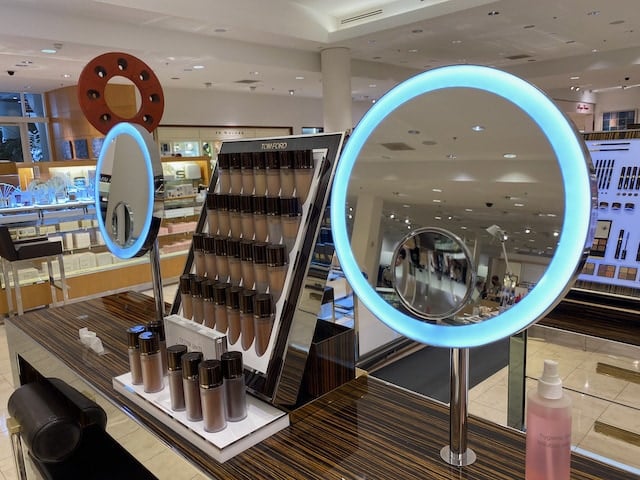
In fashion photography, the ring light flash had a run of popularity because of the distinct circular catchlight in the eyes combined with the even illumination of the subject. But the lighting pattern fell out of favor to more naturalistic patterns which use light to sculpt facial features.
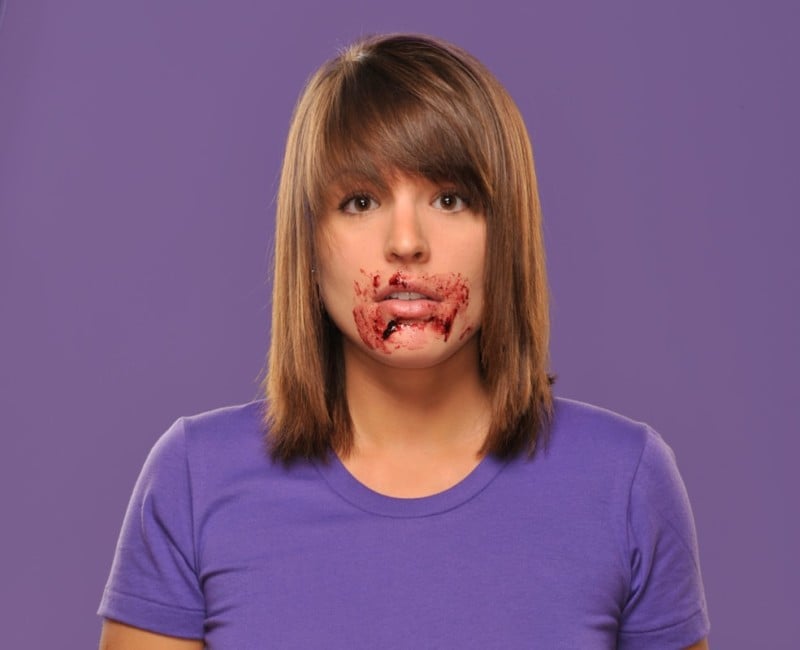
As the COVID-19 pandemic forced vast swaths of the population to resort to video conferencing, many people purchased supplemental lighting – and often ended up purchasing ring lights without understanding how they work.
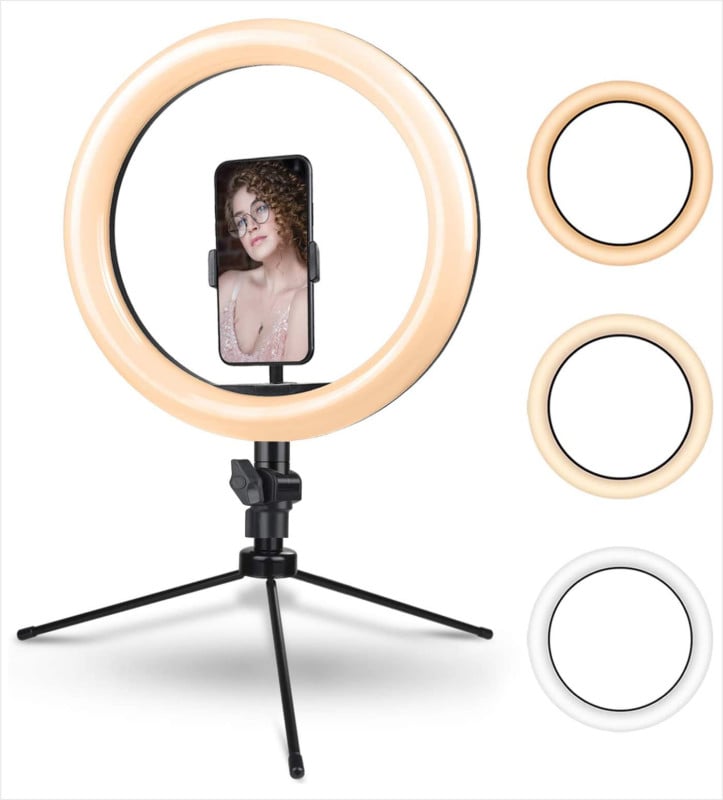
As professional portraitists know, larger light sources result in softer light if the subject to light source distance is maintained. When used properly (i.e. camera in the center of a ring light and placed relatively close to the subject), a ring light can produce a very pleasing effect. But the arrangement of built-in computer cameras disallows the proper use of a ring flash. Most consumers position their ring lights off to the side, incorrectly assuming that it will provide a diffuse, pleasing light.
But a ring light’s surface area of illumination is small. So if you really want to look good, you need a bigger light source. Many YouTube creators use large octagonal diffusers to create a soft, but directional light. For most desktop users, this is an impractical solution due to the amount of space required.
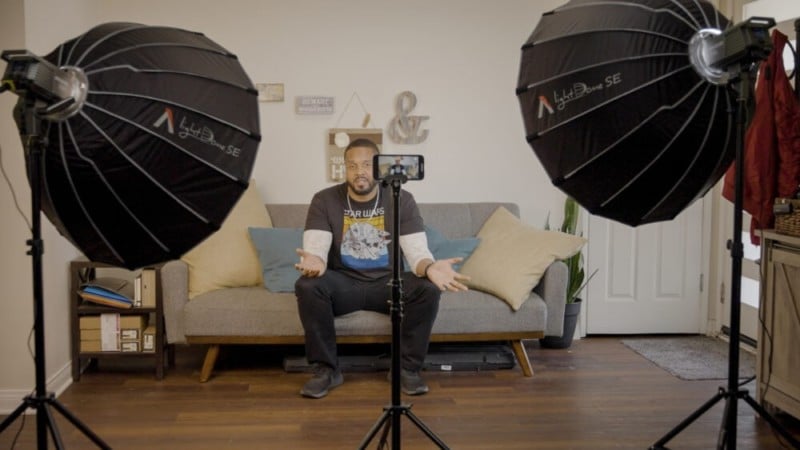
A number of companies produce flat LED panels like Fotodiox, Elgato, and Neewer of varying sizes that can significantly improve your on-camera appearance. You can position the light to create varying degrees of shadow on the face, but the “classic” position is slightly elevated above the head to create a small “butterfly” shadow beneath the nose. You want to avoid placing the light source below your face because it creates “monster light,” where shadows are cast upwards.
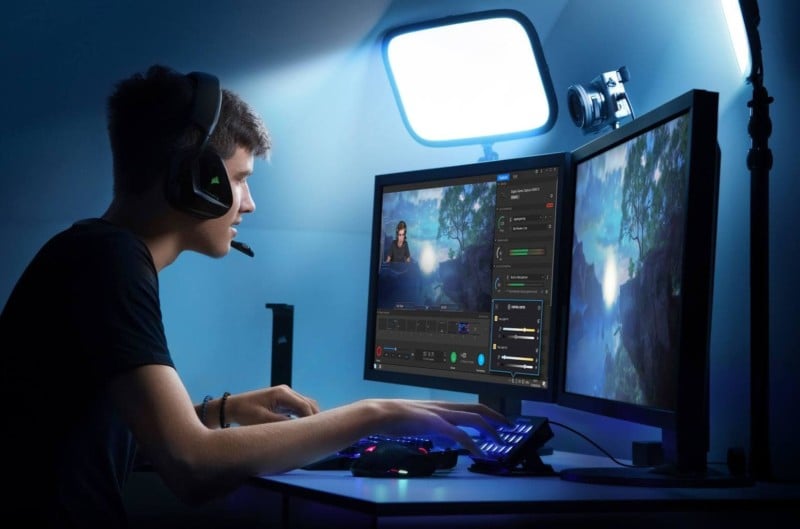
If you’re seated near a white wall, you can also bounce light (ideally two lamps on either side of your head) – effectively creating a very large light source.
Video conferencing is here to stay, so ditch the ring light! When it comes to looking good, bigger lights are better.
TL;DR If your camera lens isn’t in the center of your ring light, you’re using it incorrectly.
About the author: Allen Murabayashi is the Chairman and co-founder of PhotoShelter, which regularly publishes resources for photographers. The opinions expressed in this article are solely those of the author. Allen is a graduate of Yale University, and flosses daily. This article was also published here.
"light" - Google News
July 02, 2021 at 12:23AM
https://ift.tt/3we7dj0
You're Using Your Ring Light Wrong - PetaPixel
"light" - Google News
https://ift.tt/2Wm8QLw
https://ift.tt/2Stbv5k
Bagikan Berita Ini














0 Response to "You're Using Your Ring Light Wrong - PetaPixel"
Post a Comment